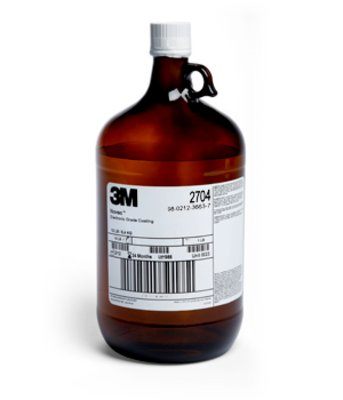An ideal circuit board with a protective coating shell contains certain properties like high thermal and chemical resistance, excellent electrical properties and insulation, and adheres well to components. Conformal coating products must also meet additional engineering and manufacturing requirements in addition to these characteristics.
From our experience working with manufacturers in all industries, there are 4 main factors considered the priorities in choosing materials for conformal coating: thermal dissipation, electrical insulation, hardness, chemical resistance, and UL certificate.
Thermal Dissipation Coatings?

There is always a risk of overheating in circuit boards due to decreased thermal flow. Poor design and engineering can be another direct cause of overheating, resulting in decreased reliability, premature failure, and damages that lead to avoidable costs and brand damage. This causes the need for better thermal management. Heat dissipation is critical to avoid overheating and exceeding the temperature limit because each component has a rated maximum operating temperature.
Although conformal coating usually does not have the effect of heat dissipation, the use of a thin layer of conformal coating will not interfere much with the heat dissipation of the circuit board. Conformal coating is cost-effective but also can only be employed if your application does not require excellent thermal management.
Electrical Insulation
Since the demand for smaller consumer electronics and devices grows, the challenges for design engineers become more complex and difficult. More integrated circuits, diodes, resistors, capacitors, and transistors must be packed into a smaller space, increasing the susceptibility for electrical reactions to occur among the devices’ components themselves. By coating, the components (especially those high voltage or high heat) are isolated from the environment and the rest of the board, protecting the PCB from electrical reactions.
In addition, conformal coating also isolates the entire PCB from the environment. To do so effectively, a coating must have electrically insulating properties and a dielectric withstand voltage (or strength) as high as possible.
Hardness
Because hardness affects the coating strength and its flexibility in the repair & rework process, it is an important characteristic for coating and other circuit protection methods in general. This is directly related to the lifespan of the device since it helps to reduce stresses and external impacts influencing the PCB.
Compared to potting and encapsulation, coating gives the thinnest protective film around the components that provides them from moisture, dust, chemicals, and other hazards.
In addition, conformal coatings have a reputation for being difficult to remove. While this is beneficial in the field and for protecting your intellectual property, it can make reworking a defective board significantly more expensive or impossible. And remember, removing the protective layer is only the first issue. Following that, there is a process of cleaning, rework, manual cleaning of the rework, and re-application of the conformal.
Chemical resistance
 The surface coating serves as the primary barrier against external strains and interactions, as well as a harsh environment. Coatings, on the other hand, are exposed to chemicals and acids through cleaning products, spills, or fumes. As a result, it is critical that the outermost layer of the coating be able to withstand chemical attacks and protect the substrate from contamination.
The surface coating serves as the primary barrier against external strains and interactions, as well as a harsh environment. Coatings, on the other hand, are exposed to chemicals and acids through cleaning products, spills, or fumes. As a result, it is critical that the outermost layer of the coating be able to withstand chemical attacks and protect the substrate from contamination.
While selecting coating materials, it is advisable to consider all these factors: types of chemicals, the concentration of chemicals exposed, time and degree of chemical exposure, temperature, and substrate types. One material may not be able to fulfill all requirements to the fullest (e.g.: A coating may be resistant to a concentrated chemical at low temperatures; however, when exposed to a dilute concentration at high temperatures, it may degrade), so manufacturers need to have clear procedures and priorities.
UL Certificate
Underwriter Laboratories (UL) is a third-party certification company that has been in business for over a century. UL is a product safety organization that establishes industry-wide standards for new products. They constantly inspect these products to ensure they meet these standards. UL testing ensures that wire sizes are correct and that devices can handle the amount of current claimed. They also ensure that products are built correctly for maximum safety.
While purchasing cheaper, non-UL-approved products from overseas manufacturers may be appealing, you may end up paying for UL-approved products in the long run. For example, coating methods use chemical compounds that seem to be risky for containing explosive chemical ingredients. However, if they are qualified by UL, that means they are trustworthy and reliable with no explosive components and even act as a protective flame-retardant material for the circuit board.






